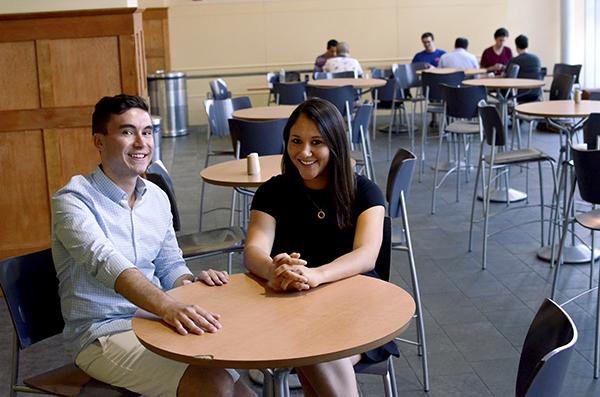After nearly 10 years, Sodexo may not be GW’s food service of choice after this academic year.
The University will start hearing proposals for a campus food service in the fall, University spokesman Kurtis Hiatt confirmed in an email. The vetting process comes as GW’s contract with Sodexo expires in the summer of 2016, and after many Student Association candidates focused their platform around student dining in February.
Hiatt said in an email that the University will be conducting a “competitive proposal process” for a food service vendor that meets GW’s needs.
That process will give students the chance to weigh in on an area of GW that is often scrutinized. A contract with a different provider would be the first big shakeup in campus dining since J Street was revamped in 2011 and 2012.
Hiatt said the search will be based on feedback from focus groups, surveys and interviews that officials conducted in the spring. He declined to provide details on the proposals GW has already received, citing University policy.
Even after going through major overhauls, sales at J Street dropped by more than 20 percent in 2013 after GW stopped requiring sophomores to spend some of their allocated money at campus dining areas.
Student Association President Andie Dowd and Executive Vice President Casey Syron said in an interview that their priority in choosing a vendor is to advocate for cheaper and healthier food options for students.
“We’re really touching on the fact that not only are the cheapest options on campus not healthy, there’s so few of them,” Syron said.
Dowd said that over the summer, she and Syron have sat in on meetings about the dining contract, where they focused on dining affordability. She said that as administrators select vendors for District House’s ground level, she wants students’ budgets to be at the front of their minds.
“A lot of people, when they plan to go to a university, they plan and say, ‘Can I pay tuition? Can I pay room and board? Yes, I can go.’ But they don’t think about all these other important things, like going out to eat,” Dowd said.
Dowd added that dining affordability was emphasized more during Colonial Inauguration, and said that some sessions focused on ways to get food without spending a lot of money.
Dowd added that there will be a board of students that will give its input about changes it would like to be made to GW’s current dining systems. She said that the board will operate similarly to the Student Dining Board that operated under the Marvin Center Governing Board, both of which were dissolved last spring.
Syron made dining a cornerstone of his platform during the elections in February, campaigning on switching GW to a swipe system, in which students are charged by the meal instead of by the weight of their food at places like J Street.
In March, GW sent out a survey to a randomly selected group of undergraduate students, asking them to rate their dining experience at GW. The surveys included questions about students’ dining habits and how often they ate on and off campus. Officials have not yet released those results.
Spencer Legred, the SA’s executive cabinet director of the Marvin Center, said a dining vendor has to have a level of “variety” because different organizations request different criteria from a food service company.
“The process is one that is very deliberate and one that requires much contemplation. It’s most definitely a long process and one where much care will be taken,” Legred said.
Jeanine Marie and Ellie Smith contributed reporting.







